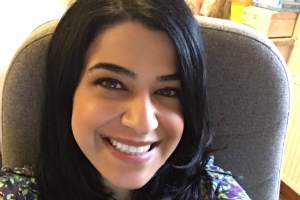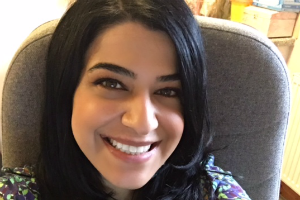GPs can make such a difference to the homeless


I like to stop and absorb the hustle and bustle of my home town. The streets have changed so much from the days I would catch the school bus and eat chips with my sisters and the pigeons in the markets.
The number of homeless people huddled on these streets has increased dramatically. I walked from the train station last week and in eight minutes counted eight homeless people. That’s one per minute.
At my GP surgery, patients without a registered address present with support from the local church or mosque, asking for medical help. Many surgeries aren’t aware that it is perfectly legal to register patients in primary care without a fixed or proof of address.
I volunteer with a weekly food drive in the city centre; we serve hot food to anybody who would like some. Colleagues have asked me how I know these people are genuine and really need help. We have served food in horrendous conditions. I can tell you this: nobody waits in a queue in torrential rain and ice cold winds for food on a paper plate, unless they are desperate.
Some are either surprised they can register with a GP, or ask for help in calling surgeries so that they are accepted
The food drive started off small, and now the queue extends to around 200. We usually run out and struggle to meet demand. Over this time I have become familiar with the regulars. Some people are just travelling through the city and I never see them again. But the regulars, I know by name, and if they choose to remain anonymous, I know them by their accent or their face. Others like to share their story of how life is treating them or how they ended up homeless.
Along with homelessness, come many health challenges. In winter, a lot of people come with persistent ’flu-like symptoms. A cup of hot tea with extra sugar and two paracetamol can make the world of difference to how they feel. But there are also the more complex problems that we cannot address at the food drive, but can help with navigating to registration with a GP or sending to A&E. I’ve seen leg ulcers with high risk of infection and gangrene, respiratory illness, malnourishment and dehydration, chronic diarrhoea from poor hygiene and limited food, and of course mental health problems.
Then there are the musculoskeletal symptoms from uncomfortable sleeping conditions. When the ladies became more familiar with our faces, they discreetly ask for sanitary towels. Then there are the dependence problems associated with difficult life circumstances, like drug addiction and alcoholism. As a doctor, I can feel helpless and frustrated at not being able to assess the person and treat them instantly. My role in volunteering for the food drive is not a medical one, and I understand this. But these people can still be assisted to access medical care in other ways.
Some don’t want any help. They have been through the system so many times, and feel they have been let down too often to trust anybody. If they stand still for a few seconds, it is sometimes long enough to see the stoic resilience in their eyes. Others are really grateful for the signposting and are either surprised that they can register with a GP, or ask for help in calling surgeries so that they are accepted.
On some occasions, people can be so poorly that they need immediate treatment in A&E. As a GP, this is why I am so immensely proud of our NHS; free treatment from the point of access and equality for everybody. What I admire even more is that primary care is at the forefront of this.
Volunteering for the food drive has really opened my eyes to homelessness. Our surgery knows that we do not turn these people away, that they can be registered and that we can treat them. General practice is all about continuity and this is one of the bonuses for these people when placing their trust in somebody new. We can make such a difference to the health and wellbeing of the homeless, and it would be a job well done if even one GP surgery accepted a person without a fixed address, as a result of this article. You never know, they might just be one of my food drive friends.
Dr MayJay Ali is a GP partner in the west Midlands. You can follow her on Twitter @DoctorMayJay
Pulse October survey
Take our July 2025 survey to potentially win £1.000 worth of tokens











